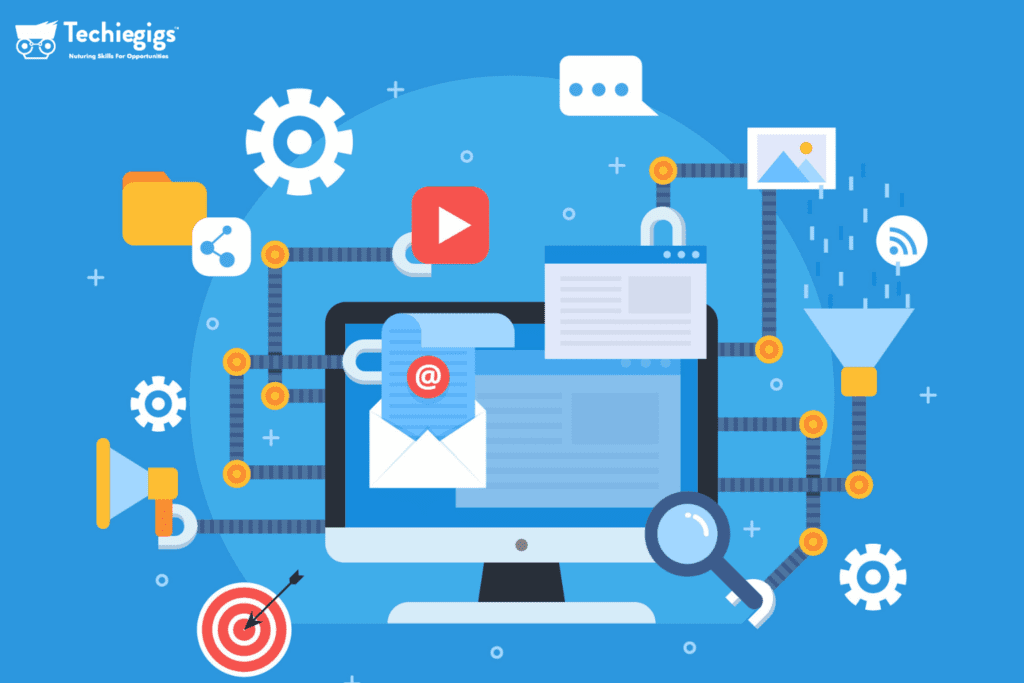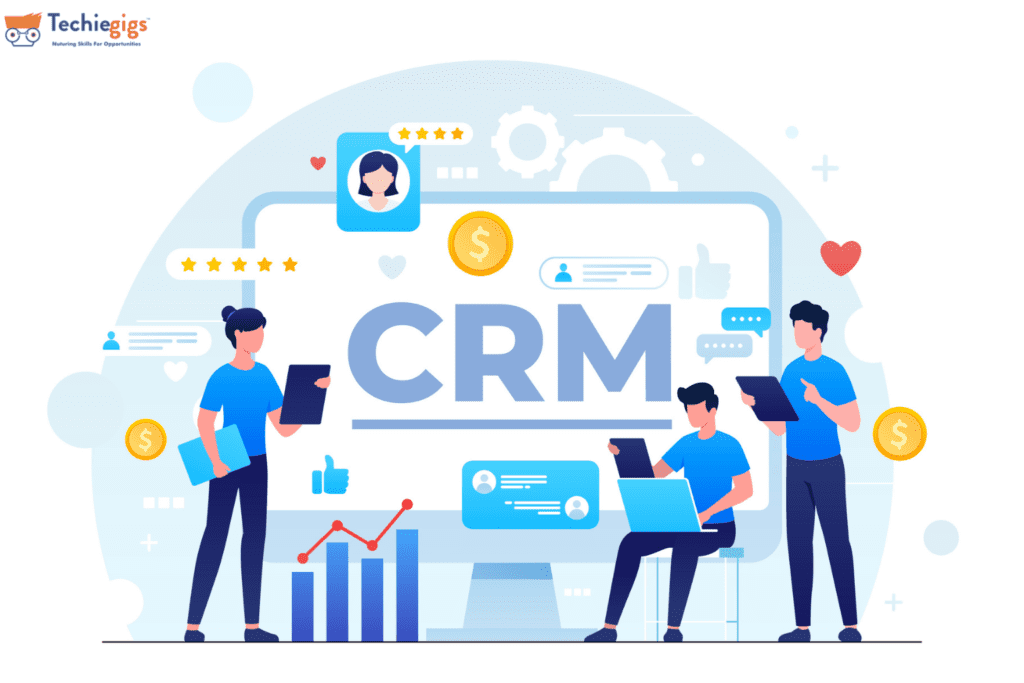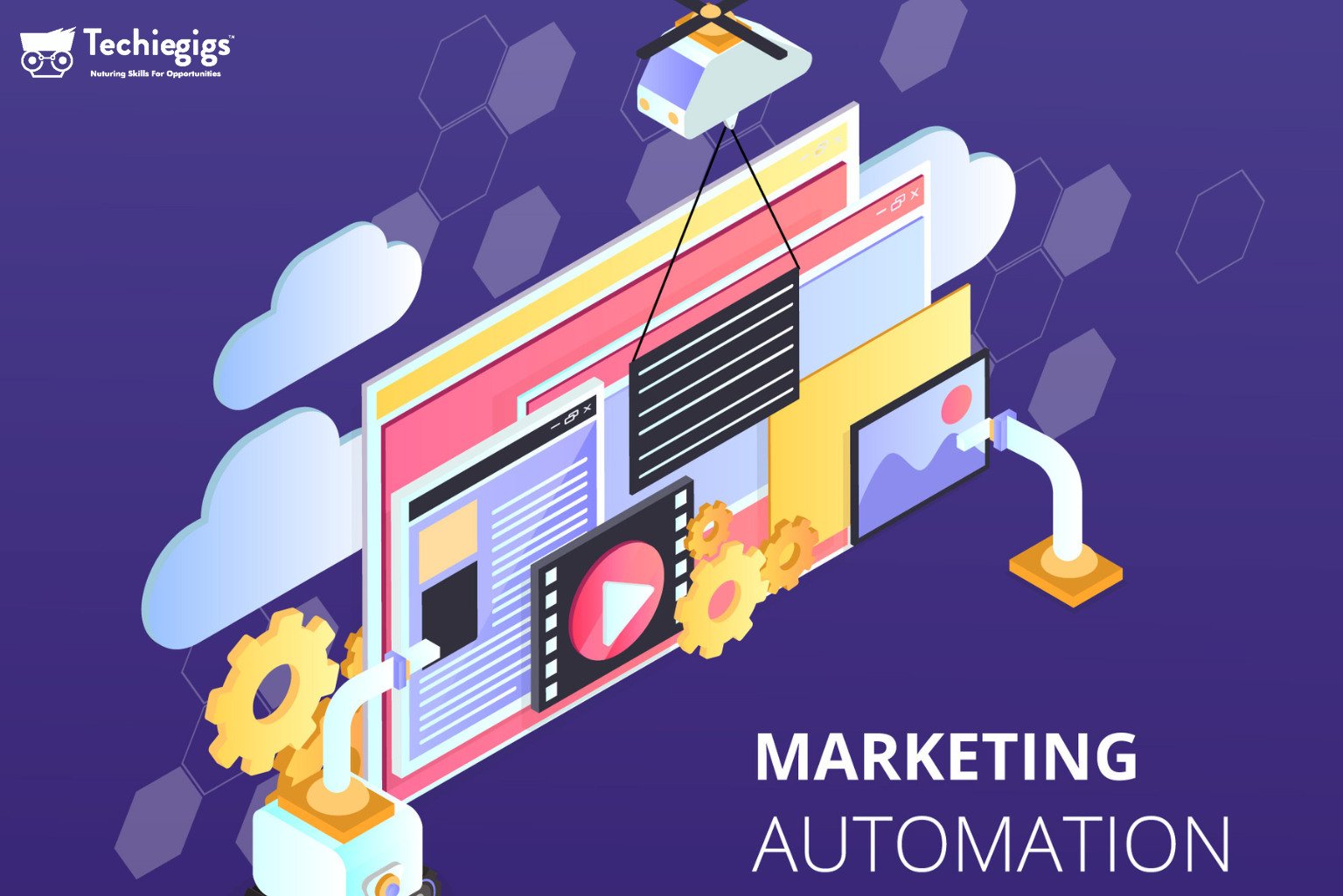In the fast-paced world of digital marketing, staying ahead of the competition isn’t just an option; it’s a necessity. Enter Marketing Automation—the game-changing strategy revolutionizing how businesses connect with their audiences. With its ability to streamline workflows and drive engagement, Marketing Automation is no longer just a luxury; it’s an essential part of modern marketing.
For example, companies leveraging Marketing Automation have reported a 14.5% increase in sales productivity and a 12.2% reduction in marketing overheads, proving its transformative potential. Imagine this: your marketing campaigns running seamlessly, personalized messages reaching customers at the right moment, and analytics driving smarter decisions. Sounds like a dream? Well, that dream is a reality thanks to Marketing Automation.

What is Marketing Automation?
Let’s start with the basics. Marketing Automation refers to the use of software and technology to streamline, automate, and measure marketing tasks and workflows. The goal? To increase operational efficiency and grow revenue faster. Whether it’s email marketing, social media scheduling, or lead nurturing, Marketing Automation empowers businesses to do more with less.
But it’s not just about saving time. It’s about building meaningful relationships with your audience. With Marketing Automation, you can craft personalized customer journeys that keep your brand top of mind and drive conversions like never before. For instance, imagine a customer browsing your website for running shoes. With automation, you can send a follow-up email featuring the specific shoes they viewed, coupled with a discount offer, guiding them closer to making a purchase.
Why Marketing Automation is a Must-Have

- Efficiency at Scale Picture this: you have hundreds, maybe thousands, of leads to nurture. Manually engaging each one is virtually impossible. Marketing Automation allows you to scale your efforts without compromising on personalization. From automated email workflows to dynamic content delivery, it ensures every touchpoint feels human and relevant.
- Data-Driven Decisions Marketing Automation platforms provide robust analytics to track performance. From open rates to conversion metrics, you’ll gain insights that guide your strategy. Metrics like customer retention rates, lead-to-sale conversions, and campaign ROI provide a clearer picture of your marketing effectiveness. No more guessing games—only informed decisions that drive growth.
- Enhanced Customer Experience Today’s consumers expect personalized, timely interactions. Marketing Automation enables just that. By segmenting your audience based on behavior, demographics, or preferences, you can deliver content that resonates, increasing engagement and loyalty.
- Cost-Effective Marketing Time is money, and Marketing Automation saves plenty of both. By automating repetitive tasks, your team can focus on creative strategies and higher-value activities that yield better returns.
Key Features of Marketing Automation Platforms
Marketing Automation tools also excel at integrating social media workflows. For instance, you can schedule posts, analyze engagement, and even set up automated responses to customer queries. Businesses can also automate Instagram stories to maintain consistent posting schedules and track hashtag performance to identify top-performing campaigns. This integration ensures not only branding consistency but also actionable insights to refine strategies. This ensures consistent branding and quicker interactions across platforms, helping businesses maintain an active and responsive online presence.
Choosing the right Marketing Automation tool can feel overwhelming with so many options on the market. Popular choices include:
| Tool | Best For | Standout Features |
| HubSpot | Growing businesses | Comprehensive suite integrating marketing, sales, and CRM. Advanced workflows and detailed analytics. |
| Marketo | Enterprise-level solutions | Advanced lead management, account-based marketing, AI-driven analytics. |
| ActiveCampaign | Small to medium-sized businesses | Cost-effective with email marketing, predictive sending, and customer experience automation. |
| Mailchimp | Beginners | Simple email marketing, pre-designed templates, and basic analytics. |
Tool Recommendations:
- For small businesses or startups with limited budgets, tools like Mailchimp and ActiveCampaign provide excellent cost-effective solutions.
- Mid-sized businesses looking for more robust capabilities might find HubSpot an ideal choice with its CRM integration.
- Large enterprises can benefit from Marketo’s advanced features like account-based marketing and AI-driven analytics.
Success Stories: How Marketing Automation Delivers Results
To illustrate the transformative power of Marketing Automation, let’s explore a detailed success story:
Case Study: Revamping Lead Engagement for a B2B Software Company
A mid-sized B2B software company faced challenges with lead response times and inefficient follow-up processes. After implementing a Marketing Automation platform, the results were staggering:
- Problem: Lead response times averaged 72 hours, resulting in missed opportunities and lower conversions.
- Solution: By automating lead assignment and follow-up workflows, the company ensured that every inquiry was addressed within 30 minutes.
- Outcome:
- Lead response time reduced by 50%.
- Sales closings increased by 15%.
- Customer satisfaction scores improved due to faster and more personalized interactions.
This case study underscores how Marketing Automation can streamline operations and boost bottom-line results.
How Marketing Automation Transforms Your Business
Still wondering if Marketing Automation is worth the investment? Here’s how it delivers tangible benefits:
- Better Lead Nurturing: Guide prospects through the sales funnel with tailored content. For example, a boutique clothing retailer adopted Marketing Automation to send abandoned cart emails, recovering 25% of potential sales within three months.
- Improved ROI: Maximize every marketing dollar by targeting the right audience at the right time.
- Stronger Brand Consistency: Ensure your messaging remains cohesive across all channels.
- Faster Sales Cycles: Automate follow-ups and nurture leads to accelerate conversions.
Common Myths About Marketing Automation
- It’s Only for Big Businesses: Marketing Automation isn’t reserved for enterprise giants. Small and medium-sized businesses can leverage affordable tools like ActiveCampaign, Zoho CRM, or Mailchimp to compete effectively. For instance, a local fitness studio used ActiveCampaign to automate their class reminders and promotional emails, increasing member attendance by 20%.

- It’s Impersonal: Automation doesn’t mean robotic. In fact, it allows for greater personalization through tailored content and interactions.
- It’s Too Expensive: While some tools have a steep price tag, there are scalable solutions for every budget. Plus, the ROI often outweighs the initial investment.
Best Practices for Successful Marketing Automation
- Start Small Don’t try to automate everything at once. Begin with a single campaign, such as an email drip, and expand as you see results.
- Focus on Quality Data Your automation is only as good as the data you feed it. Ensure your contact lists are clean and segmented.
- Test and Optimize Use A/B testing to refine your messaging and workflows. Continuous optimization is key to success.
- Integrate Across Channels Marketing Automation works best when it’s part of an integrated strategy. Ensure your email, social media, and web campaigns work in harmony.
Ready to Take the Leap?
The future of marketing isn’t coming—it’s already here. By embracing Marketing Automation, you’re not just keeping up with the times; you’re leading the charge. Whether you’re a small business owner or a marketing professional, the benefits are undeniable. Efficiency, personalization, and data-driven insights are at your fingertips.
Don’t wait to unlock the potential of Marketing Automation. Let Techiegigs guide you through the process with services like platform selection, strategy development, workflow automation, and performance analytics, tailored to your unique needs. Additionally, Techiegigs provides training sessions to help your team maximize these tools effectively. Ready to transform your marketing game?
Take the first step with Techiegigs today! Contact us now and let’s create something extraordinary together.



